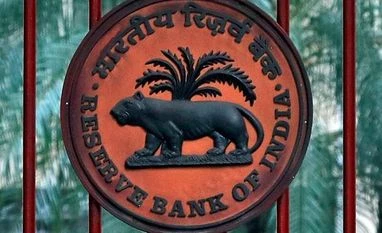In a meeting with about 50 FPIs and a few custodians on Monday the central bank said it did not want to tweak the existing regulations, said sources in the sector.
The RBI has instead asked investors to look at the voluntary retention route (VRR) — a new channel currently in the works to enable FPIs to invest in debt markets in India — to bypass existing restrictions.
In April 2018, the government introduced these restrictions to cap an FPI’s investment in a single corporate bond to 50 per cent of the bond issue.
This restricted their exposure in any single corporate group to not more than 20 per cent of their overall corporate bond portfolio. They were allowed to invest in debt papers with less than three-year maturities, provided the total investment in debt papers maturing within a year did not exceed 20 per cent of the portfolio.
The FPIs had felt the restrictions were too onerous and difficult to monitor, and wanted these to be done away with.
“The FPIs’ contention was that the RBI should go back to the old regime. The RBI said it did not want to tinker with the new rules, and that it was offering the investors a new route under the VRR,” said a source familiar with the matter.
In October, the RBI came out with a discussion paper with proposals to introduce the VRR. Investments through the route would be free of the macro-prudential and other regulatory prescriptions applicable to FPI investments in debt markets, provided the FPIs voluntarily commit to retain a required minimum percentage of their investments in India for a period of their choice, the discussion paper stated.
For instance, FPI investments through the VRR shall be exempt from the cap on short-term investments (less than a year) at 20 per cent of the portfolio size, concentration limits, and caps on exposure to a corporate group. The total amounts for investment through the VRR shall be separately indicated for government securities (G-Sec) and corporate debt (including commercial paper), and shall be individually allocated to FPIs through an auction process.
The minimum retention period for allotments under each auction would be three years or as decided by the RBI.
“As of now, the RBI is taking care of servicing the SDLs on time. There is no explicit undertaking or comfort on this. Investors may think these bonds are not sovereign and less traded as they are not reissued. And, to that extent, they are not keen to put money in SDLs. So, someone needs to clear the air on this,” said Ajay Manglunia, head, fixed income, Edelweiss Capital. Measures to boost investments in the currency derivatives segment and interest rate futures were also discussed.
The average daily turnover of currency derivatives for December stood at Rs 25,412 crore on the BSE and Rs 36,953 crore on the NSE. The turnover of interest rate derivatives stood at Rs 202 crore and Rs 1,957 crore on the two exchanges, respectively.
FPIs are permitted to invest in central government securities (g-secs), including Treasury bills, and the SDLs without any minimum residual maturity requirement, subject to the condition that short-term investments by an FPI under either category does not exceed 20 per cent of the total investment of that FPI in that category. Currency volatility, concerns on fiscal slippages, political uncertainty, and restrictions on investments has spooked FPIs investing in debt papers.
The rupee depreciated 8.4 per cent to 69.77 against the dollar in 2018, and has shed 2.1 per cent this year.
FPIs sold Rs 46,500-crore worth of debt papers in 2018. When interest rates were near-zero in the US, it made sense to come to India, take forex risk and invest in Indian bonds, according to experts. One could get a 3-4 per cent return, after hedging.
But with the Fed hiking rates and emerging markets now seen as a risky proposition, India has become much less attractive for FPIs. Volatility in Crude oil prices could put the Indian currency under pressure again.
One subscription. Two world-class reads.
Already subscribed? Log in
Subscribe to read the full story →

Smart Quarterly
₹900
3 Months
₹300/Month
Smart Essential
₹2,700
1 Year
₹225/Month
Super Saver
₹3,900
2 Years
₹162/Month
Renews automatically, cancel anytime
Here’s what’s included in our digital subscription plans
Exclusive premium stories online
Over 30 premium stories daily, handpicked by our editors


Complimentary Access to The New York Times
News, Games, Cooking, Audio, Wirecutter & The Athletic
Business Standard Epaper
Digital replica of our daily newspaper — with options to read, save, and share


Curated Newsletters
Insights on markets, finance, politics, tech, and more delivered to your inbox
Market Analysis & Investment Insights
In-depth market analysis & insights with access to The Smart Investor


Archives
Repository of articles and publications dating back to 1997
Ad-free Reading
Uninterrupted reading experience with no advertisements


Seamless Access Across All Devices
Access Business Standard across devices — mobile, tablet, or PC, via web or app
)

